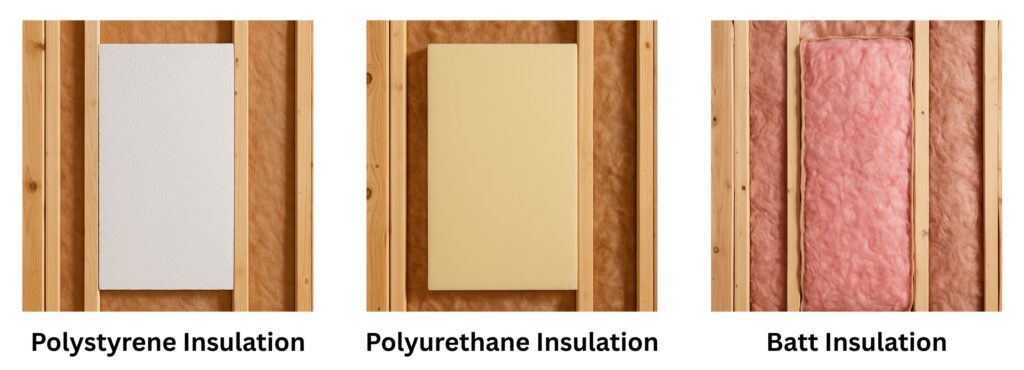Last August, we helped a homeowner in Dripping Springs who was losing sleep and money because of the extreme heat in their garage. The temperature inside had soared above 110°F, turning their storage area into a sauna. Their HVAC couldn’t keep up, and their energy bills kept climbing. After installing an insulated roll-up garage door, the change was immediate: cooler indoor air, quieter surroundings, and significantly reduced energy loss.
Garage doors are one of the most overlooked points of thermal transfer in a home. According to energy efficiency experts, up to 30% of a home’s heat gain can come from the garage. With heatwaves becoming more intense across Texas, especially in Austin and Dripping Springs, more homeowners are seeking durable, energy-efficient solutions.
If your current garage door is not insulated, you could be facing higher energy bills, damaged belongings, and even long-term issues with your home’s comfort and structure. That’s where insulated roll-up garage doors come in.
What Is an Insulated Roll-Up Garage Door?
An insulated roll-up garage door is made of durable steel or aluminum layers filled with polyurethane or polystyrene insulation. These doors roll into a compact space-saving coil, making them ideal for both residential and commercial properties.
Unlike traditional sectional doors or non-insulated doors, insulated roll-up doors offer heat insulation, noise reduction, and advanced weather resistance, all essential benefits for homes facing long, hot Texas summers.
How Heat Affects Your Garage and Home
A non-insulated garage door becomes a gateway for thermal transfer, allowing the summer heat to invade your garage space. This leads to:
- Increased temperature inside your home
- Strain on your HVAC system
- Warping or melting of stored products and tools
- Reduced return on investment in energy-efficient home upgrades
In contrast, an insulated garage door acts as a barrier, maintaining a cooler temperature inside and preserving the integrity of your materials and equipment.
Insulation Materials: What’s Inside Matters
The performance of an insulated garage door depends on the insulation material used:
🔹 Polystyrene
- Lightweight and cost-effective
- Available in insulation kits or panels
- Rigid but less efficient than polyurethane
- Often found in insulation kits and door insulation kits
🔹 Polyurethane
- Offers higher R-values for superior thermal protection
- Foamed-in-place for complete panel fill
- Excellent for noise reduction and strength
- Ideal for energy-efficient installations
🔹 Other Options
- Fiberglass, rigid foam, styrofoam, and urethane can also be used in garage door insulation, depending on the type and brand.

Understanding R-Values and U-Values
- R-value measures resistance to heat flow: higher is better.
- U-value measures heat transfer: lower is better.
For Texas homes, doors with high R-values (R-12 or above) and low U-values offer the best defense against extreme weather and energy loss.
Top Benefits of Insulated Roll-Up Garage Doors
✅ Energy Efficiency
Insulated doors keep hot air out and cool air in, lowering energy usage and helping reduce energy bills.
✅ Comfort & Use
Make your garage a year-round workspace, home gym, or storage room by keeping it cool and quiet.
✅ Durability
With multi-layer steel, aluminum, and polyurethane construction, these doors last longer and resist warping and dents.
✅ Noise Reduction
Cut down on noise pollution from roads, neighbors, or loud equipment.
✅ Investment Value
Adding an insulated garage door boosts home value and offers a solid return on investment, especially if you install top brands like:
- Amarr garage doors
- Clopay garage doors
- Martin garage doors
- Craftsman garage doors
- Chamberlain garage doors
Residential vs. Commercial Applications
Whether you’re dealing with a car garage door at home or need to secure a commercial facility, insulated roll-up doors are versatile and dependable.
- Homeowners benefit from climate control and comfort.
- Businesses protect inventory, improve energy efficiency, and enhance security.
DIY vs. Professional Installation
While door insulation kits and batt insulation offer quick fixes, professional installation of a full insulated door delivers:
- Proper thermal seals
- Correct fit for max energy savings
- Full warranty and safety inspection
- Reduced risk of malfunctions in the garage door opener or logic board
Step-by-Step Guide to Choosing the Right Door
- Measure your garage space: Know the height, width, and clearance.
- Select the right material: Steel, aluminum, or fiberglass.
- Decide on insulation type: Polyurethane for best performance.
- Compare brands: Look for ones with high R-values and solid warranties.
- Request a consultation: Ensure compatibility with your garage door opener and electrical setup (even down to the light socket placement).
Pros and Cons at a Glance
| Pros | Cons |
| Excellent insulation | Higher initial cost |
| Lower energy bills | Heavier door may need a stronger opener |
| Noise reduction | Professional installation recommended |
| Boosts home value | Maintenance is required for long-term use |
How Can Dripping Springs Door Center Co. Help You?
At Dripping Springs Door Center Co., we help Texas homeowners and businesses beat the heat with high-performance insulated roll-up garage doors. Whether you’re looking for better energy efficiency, a quieter space, or a long-term upgrade to your property, we have the tools, materials, and experience to deliver.
Here’s what sets us apart:
- ✅ Expert Installations using top-tier brands and materials
- ✅ Custom Solutions for residential and commercial spaces
- ✅ Professional Repair Services for springs, openers, and panels
- ✅ Energy-Saving Recommendations tailored to Texas homes
- ✅ Routine Maintenance Plans to extend the life of your door
Let us help you transform your garage into a cooler, quieter, more efficient space.
📍 Visit Us: Springlake Dr, Dripping Springs, TX 78620
📞 Call Now: (512) 812-8224
Don’t wait for the next heatwave to strike. Call today and upgrade to an insulated garage door that makes a difference.
Frequently Asked Questions
1. How long does an insulated roll-up garage door typically last?
With proper maintenance, an insulated roll-up garage door can last 20 to 30 years, depending on material quality and usage.
2. Can insulated roll-up garage doors be painted to match my home?
Yes, most insulated roll-up doors can be custom-painted or powder-coated to match your home’s color scheme.
3. Is it possible to upgrade my existing garage door with insulation?
You can add aftermarket insulation kits, but they won’t be as effective as a fully integrated insulated roll-up garage door.
4. Do insulated garage doors help in winter, too?
Absolutely, insulated doors act as a thermal barrier, keeping cold air out and helping maintain a stable indoor temperature year-round.

